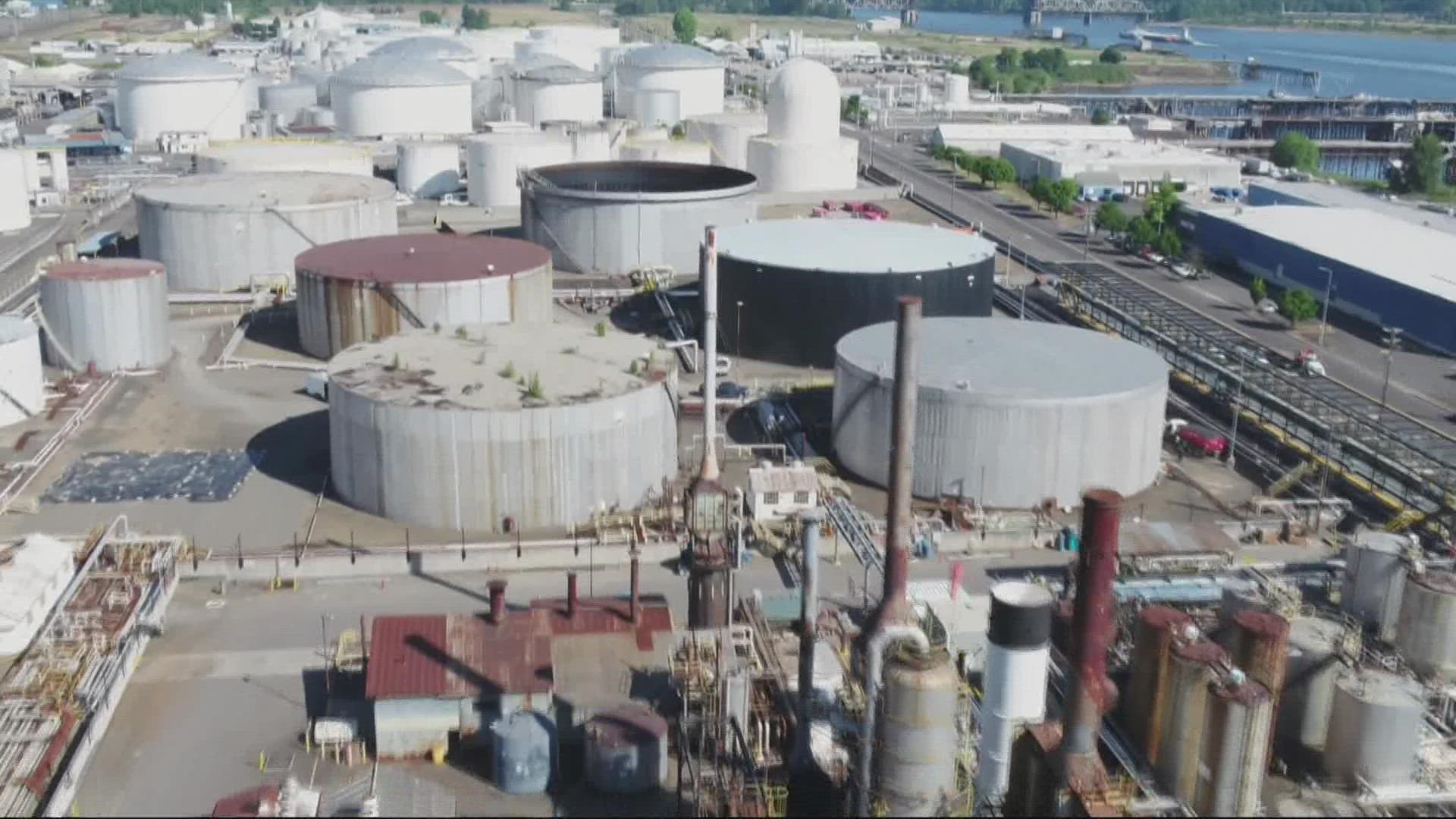PORTLAND, Ore. — The City of Portland announced Friday it has rejected Zenith Energy's expansion of a crude oil terminal in Northwest Portland.
Zenith is a Texas-based oil logistics company that stores oil tankers all around the world. The oil terminal gets crude oil from trains traveling through the Pacific Northwest, stores it in tanks and then transfers it to outgoing ships or pipelines.
According to figures from 2018, the BNSF railway route from Vancouver to North Portland saw only 34 crude oil tanker cars in 2016. Two years later, the route saw 2,836 trains. BNSF's route from east St. Johns to Willbridge only saw two cars in 2016, and 2,836 in 2018.
RELATED: Mistrial in 2019 Oregon oil train trespassing case a victory for the climate, attorney says
Portland's commissioners, along with several state lawmakers, vehemently opposed giving Zenith the land use compatibility statement (LUCS) needed for the expansion. A LUCS is a form from the Department of Environmental Quality (DEQ) to determine whether or not that business' permit will be consistent with a local government's plans and land use regulations. The city's Bureau of Development Services officially rejected the LUCS Friday morning.
"While the current zoning code does not prohibit the activity, the City of Portland has recently adopted Comprehensive Plan policies to address the issues and challenges facing Portland, including but not limited to climate change and the importance of transitioning to clean, renewable energy; hazard prevention and disaster preparedness; and addressing adverse impacts on the environment and historically marginalized groups," Rebecca Esau, director of BDS, wrote in a letter to Zenith.
State Rep. Khanh Pham supported the city's decision, saying in part, "Credit goes to the hard work of advocates and community members who would not give up on Portland’s commitment to climate justice. The ruling on Zenith Energy is not only a right step for Portland’s climate commitments. It also represents an example of bold action that other cities and counties must take as the climate crisis accelerates.“
In a statement Friday, the company said they plan on appealing the decision.
"We are very disappointed in the City's decision, which is particularly puzzling as we know our plan to transition to a fully renewable energy facility is very much in line with the values and goals reflected in the City of Portland's 2035 Comprehensive Plan."

